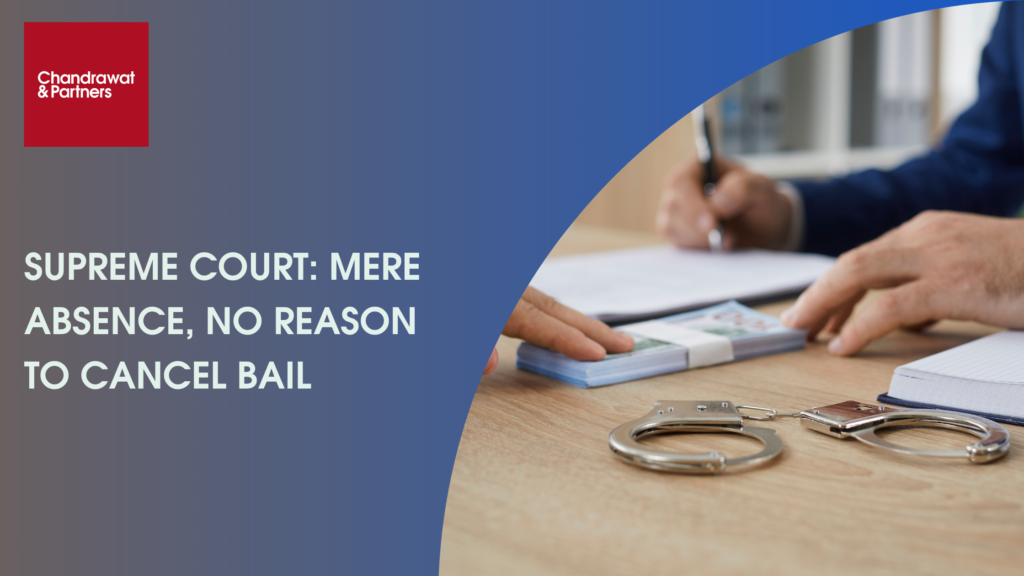Share :
Introduction
In a recent judgement, the Supreme Court has shed light on the crucial distinction between granting bail and cancelling it. The case, Krishna Sharma Alias Krishna Kumar Sharma vs. The State of West Bengal clarifies that an accused’s mere absence from court proceedings is not a sufficient reason to revoke bail.
BACKGROUND OF THE CASE
The Calcutta High Court had cancelled the bail granted to Krishna Sharma after he failed to appear before the court on several occasions. The High Court interpreted these absences as a deliberate attempt to evade the legal process, suggesting that Krishna Sharma’s attitude was disrespectful (insolent stance) towards the court.
SUPREME COURT’S RULING
The Supreme Court bench, comprising Justices B.R. Gavai, Sanjay Karol, and Sandeep Mehta, took a different stance. They emphasized that the grounds for granting bail and cancelling it are distinct:
- Granting Bail: Bail is granted based on factors like the severity of the offense, the strength of the prosecution’s case, and the likelihood that the accused will appear for trial.
- Canceling Bail: However, bail can only be revoked if the accused violates the conditions of their release, such as:
o Fleeing from justice
o Tampering with evidence
o Intimidating witnesses
- An accused’s absence from court proceedings alone cannot be the sole reason to cancel the bail.
- The court must have concrete evidence that the accused is misusing their bail or jeopardizing the trial process.
This judgement protects the rights of the accused by ensuring that bail cannot be arbitrarily revoked solely due to non-appearance. It emphasizes the need for a valid reason and due process before taking such a step.
The Court also acknowledged the explanation provided by Krishna Sharma’s lawyer regarding the reason for his absence (traffic jam due to VIP movement). Additionally, the judgement highlights that the accused still has the responsibility to ensure their presence in court as mandated.
CONCLUSION
The Supreme Court’s ruling in the Krishna Sharma case serves as a significant reminder that the legal system prioritizes a balance between upholding the law and protecting the individual’s right to a fair trial. While an accused’s presence in court is crucial, their absence cannot be the sole factor for revoking bail without sufficient evidence of wrongdoing.
For more information or queries, please email us at
enquiries@chandrawatpartners.com




